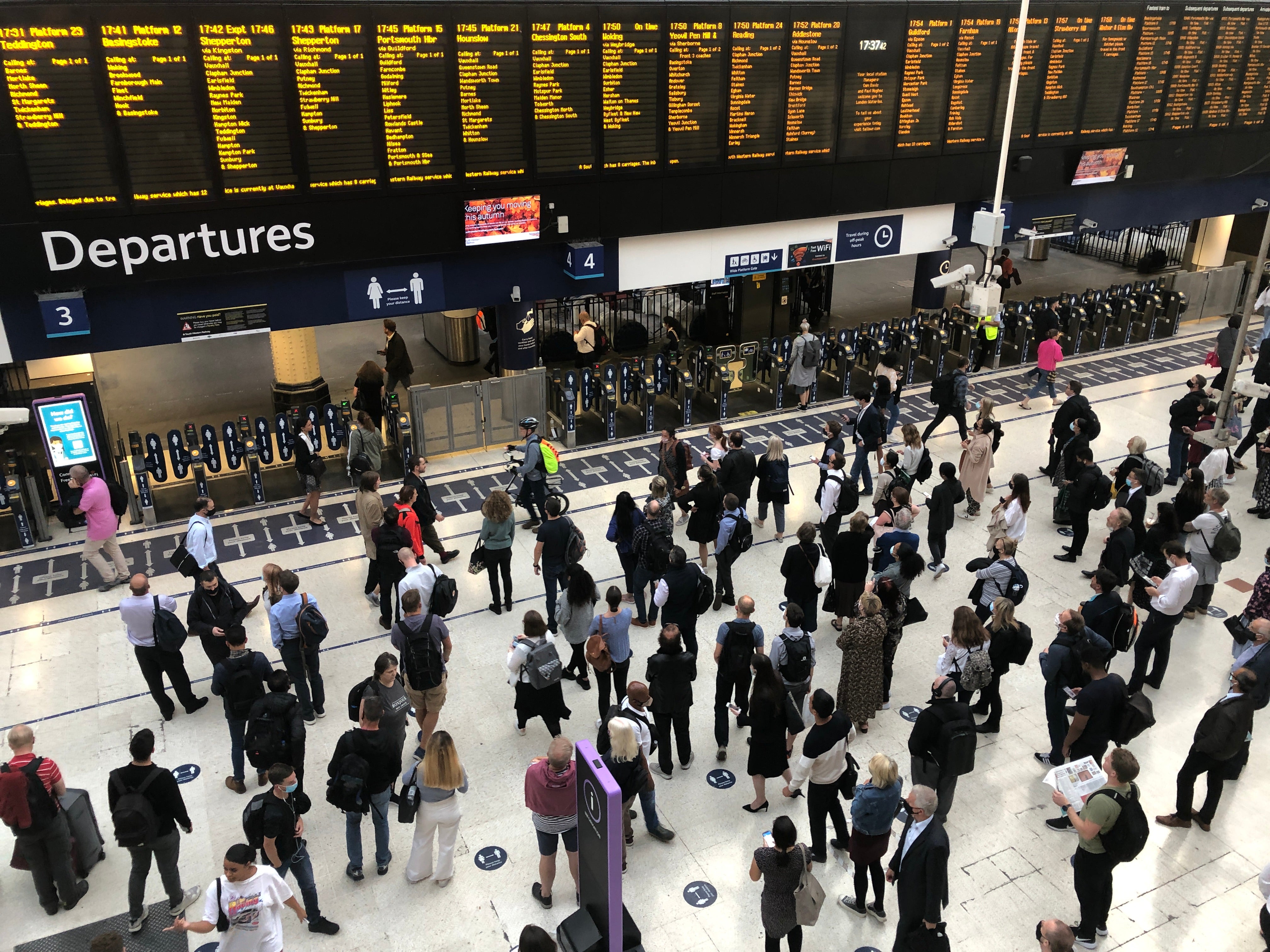Have flexi-season train tickets made any difference for commuters?
Exclusive: ‘In many cases they have added to, rather than reduced, the ticket complexity,’ says Mark Smith

Three months after “flexi-season” tickets were introduced on the railways, there is little evidence of these much-promoted fares making much difference.
The new tickets allow travel on any eight days in a four-week spell. When they were introduced in late June, the government said: “The change has the potential to save commuters hundreds of pounds.”
But according to a leading rail champion, they represent only “a sticking plaster”.
Mark Smith, the former British Rail manager who founded the Seat61.com international train travel site, told The Independent: “In many cases flexi seasons have added to, rather than reduced, the ticket complexity faced by commuters.
“Their value varies enormously from journey to journey across the network, a useful option in some cases, a poor-value distraction in others.
“They can only be considered a sticking plaster. A complete reform of all rail fares is vital – and there’s a one-off opportunity for that as Great British Railways takes over.”
This new entity is set to run the rail network and most train services.
The Independent sought travellers’ views on the new flexi-season tickets on social media.
One user responded: “They are no help unless you are travelling twice a week, eight times a month. I’m only travelling to the office one day a week. We need a national pay-as-you-go scheme.
Another said: “Have no intention of trying one. Absolute waste of time. When I do go into the office I’m getting the first off-peak train in – and I’m aware I’m fortunate that my employer gives me this flexibility, which many don’t have.”
Carly McGill wrote: “I looked at these and there is no cost saving for me. They are wrapped up well, like they are going to save you a lot of money. But just not the case for me.”
Most rail commuters are travelling in southeast England. One of them, Paul Gardiner, said: “Their fatal flaw is Home Counties into London daily works out the same price as a peak fare.
“If they made flexi tickets the same price as an off-peak ticket and you could travel before 9am they’d be great. As it is, savings are minimal and not worth it.”
Andy Lord wrote: “The flexi-season ticket works out 50p a day more expensive than a peak out/off peak back (the latter with a Network Card discount). So less flexible and more expensive!”
Martin McDonald said: “Was going to, checked how much I would have saved had I gone into the office three times a week, grand sum of 80p compared to on the day tickets.”
Some respondents mourned the loss of “carnet tickets” that some train operators offered – typically providing a 10 per cent discount for a pack of 10 tickets.
“I found they suited me perfectly,” said one Twitter user. “I could mix peak and off-peak tickets if I was home late. The flexi tickets aren’t flexible enough – I’m not always in on eight days in 28.”
Mags Rivett concurred, saying: “Bring back the carnets – but with a more realistic discount. Ours was only 5 per cent for 10 journeys to use in 28 days. They offer considerably more true flexibility.”
But another user praised the innovation: “Work really well for me, bought the ‘travel eight days in 28’ version for going to the office twice a week. Will use again.”
Another added: “Savings not massive but very easy on Northern. All on the app and easier than having to remember tickets/photocards, etc.”
The government and the rail industry have both declined to tell The Independent how many flexi-seasons have been sold.
Join our commenting forum
Join thought-provoking conversations, follow other Independent readers and see their replies
Comments
Bookmark popover
Removed from bookmarks